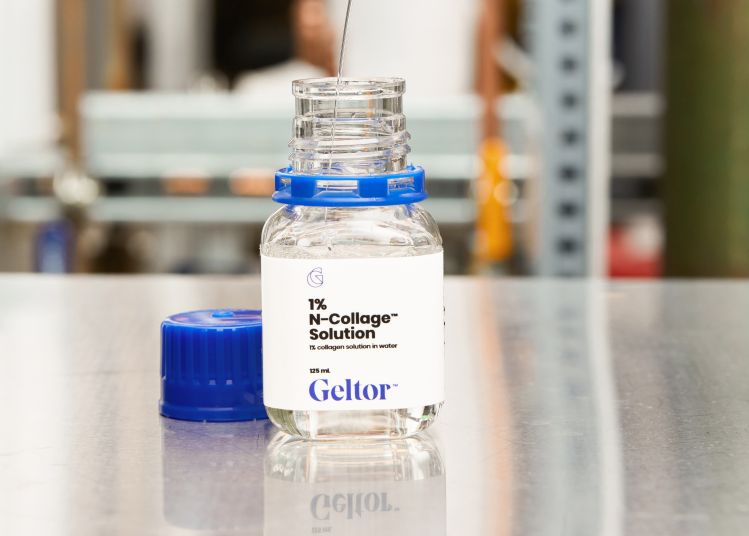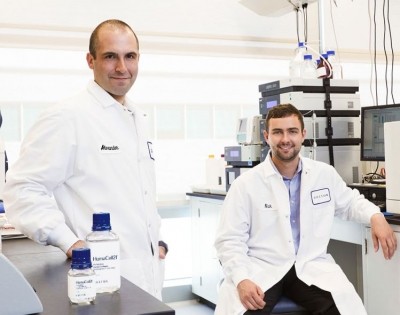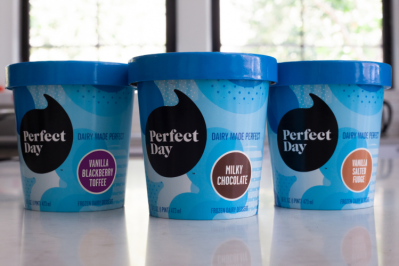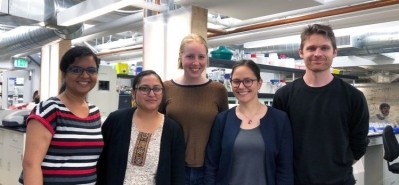Geltor raises $18.2m, gears up for 2020 launch of animal-free collagen proteins for the food industry
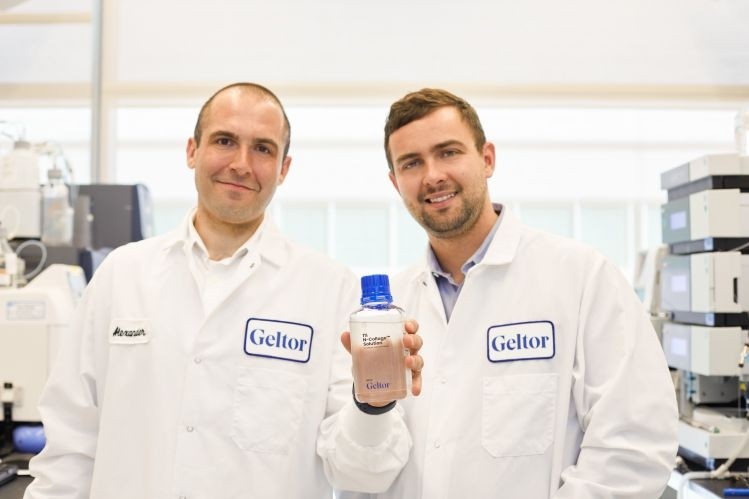
The company – which is using synthetic biology techniques to engineer micro-organisms to produce collagen (from which gelatin is derived) via a fermentation process without using or harming animals – says there is significant demand for vegan proteins that have the nutritional and functional properties of animal protein.
The collagen protein Geltor makes is nature identical to collagen from animals, but it can also produce proteins with tailored nutritional and functional properties (eg. different stiffness or melting properties or amino acid profiles), said co-founder Alexander Lorestani, who studied medicine at Rutgers and bacterial pathogenesis at Princeton and started Geltor with molecular biologist Nikolay Ouzounov in 2015.
While there are already vegan substitutes for gelatin on the market such as agar, agar, pectin, starches, and gums, said Lorestani, anyone that’s tried a gummi bear made with a gelatin substitute knows they are just not the same, that they don’t have the same chemical or mechanical properties, he told FoodNavigator-USA.
Why are companies interested in animal-free collagen?
There are three things potential customers have honed in on – whether they are in cosmetics, confectionery, sports nutrition or other industries Geltor is targeting - he added:
“The first is that they have been operating with a very limited toolkit [with animal-derived collagen] and we can offer highly customized proteins.
“The second is that companies want to remove animal derived ingredients and often collagen or gelatin are the only animal derived ingredients in a formulation.
“The third, is that many companies have aggressive CSR or sustainability goals and they want to find sustainable sources of collagen [which is currently sourced from cows, pigs and fish].”
Pork-derived gelatin is not halal or kosher, while bovine gelatin is only halal if the animals were slaughtered in a certain way
There is also demand to change for ethical or religious reasons (pork-derived gelatin is not halal or kosher, while bovine gelatin is only halal if the animals were slaughtered in a certain way), coupled with concerns about animal diseases [eg. BSE] and restrictions on supplies, he added.
That said, many consumers don’t realize that the collagen found in consumer products today is sourced from the skin and bones of livestock, said Lorestani, who is exploring a GRAS determination for the collagen proteins for food ahead of the 2020 launch.
“Only 31% of consumers know that collagen is from an animal.”
“With a team of experienced and passionate PhD scientists behind it, and a unique, science-first approach, the company is pioneering a new industry standard for protein creation and we’re excited to be their partner on this journey.”
Dan Phillips, managing director, Cultivian Sandbox Ventures.
What is gelatin?
Gelatin is a flavorless, colorless gelling and thickening agent derived from animal skin, bones and connective tissues with unique properties: it dissolves in hot water and gels when it cools (a process which is reversible), and creates a texture and bite in candies such as marshmallows, desserts, gummi bears and other candies that is very hard to replicate with plant-based alternatives.
It is manufactured on a commercial scale from pig skin, cow hide, cattle bones, fish skin, and other animal sources of collagen, which is hydrolyzed (chopped up) via acid, alkaline, or enzymes to make gelatin.
According to a June 2016 report from Grand View Research, food & beverage is the biggest market for gelatin in the US, followed by nutraceuticals, pharmaceuticals, photography, and personal care.
